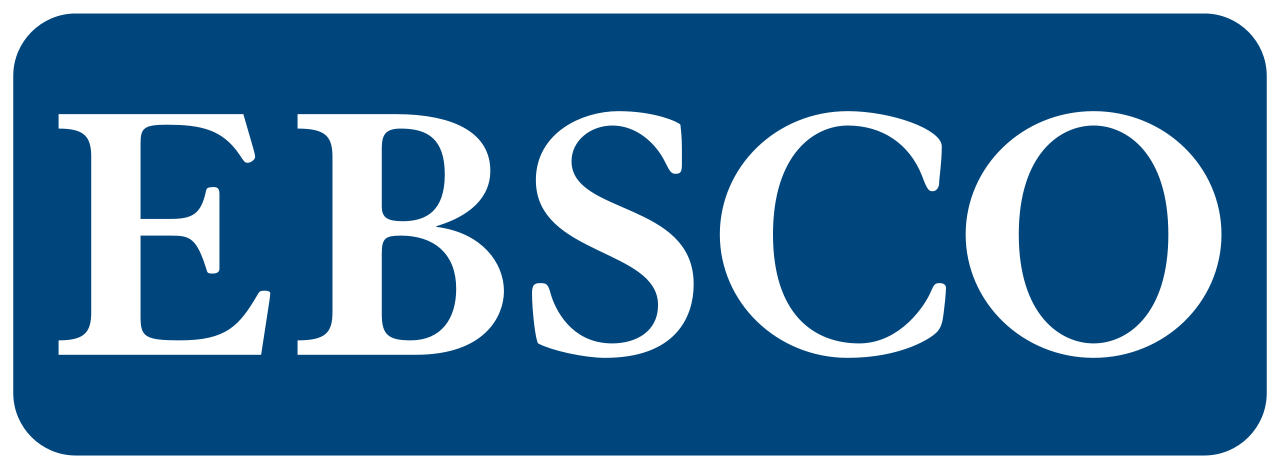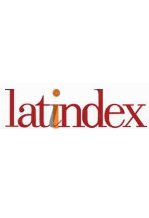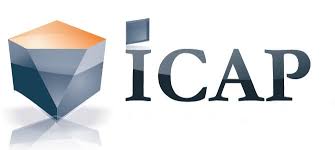DIFERENTES INTERPRETAÇÕES TEÓRICAS ACERCA DA CORRUPÇÃO: UMA PROPOSTA DE ANÁLISE EMBASADA NA VERTENTE TEÓRICA-ECONÔMICA DO VELHO INSTITUCIONALISMO EVOLUCIONÁRIO
Mots-clés :
agentes; corrupção; evolucionária; governos; institucionalismoRésumé
O presente artigo buscou demonstrar e analisar quais são as principais definições de corrupção encontradas constantemente na literatura. Além disso, apontou-se que as definições usuais e com afinidades em relação a corrente teórica clássica-utilitarista apresenta significativas limitações. Sejam elas na própria definição, no conceito de corrupção, quanto nas análises que essa possibilita. A partir disso, sugeriu-se que a abordagem evolucionária proveniente da economia institucional constituída pioneiramente pelos trabalhos de Thorstein Veblen demonstra maior grau de adequação e eficiência ao aproximar-se mais visivelmente da realidade, assim, possibilitando análises empíricas com maior grau de robustez e clareza.
Téléchargements
Références
ARIELY, Dan; JONES, Simon. The honest truth about dishonesty. New York: Harper Collins Publishers, 2012.
BECKER, Gary S. Crime and punishment: An economic approach. In: The economic dimensions of crime, London: Palgrave Macmillan, 1968, p. 13-68.
BREI, Andrade Z. Corrupção: dificuldades para definição e para um consenso. Revista de Administração Pública, Rio de Janeiro, v. 30, n. 1, 1996, p. 64-77.
BROWN, Ed; CLOKE, Jonathan. Critical perspectives on corruption: an overview. critical perspectives on international business, v. 7, n. 2, 2011, p. 116-124.
EUBEN, J. Peter. Corruption. In Terence Ball, James Farr & R. L. Hanson (Eds), Political innovation and conceptual change, Cambridge: Cambridge University Press, 1989, p. 220–46.
FAVORATO, Diego. G.; COLOMBO, Arthur. O.; SARTORIO, Sarah. G. P. KEYNES E O PRINCÍPIO DA DEMANDA EFETIVA: REFUTAÇÃO DA LEI DE SAY, DETERMINAÇÃO DAS EXPECTATIVAS E NATUREZA DO EQUILÍBRIO. Revista de Economia Mackenzie, v. 17, 2020, p. 51-72.
FERES JÚNIOR, J. Interesse público. In: Corrupção: ensaios e crítica, Belo Horizonte: UFMG, 2008, p. 163-172.
FILGUEIRAS, Fernando. A tolerância à corrupção no Brasil: uma antinomia entre normas morais e prática social. OPINIÃO PÚBLICA, Campinas, vol. 15, nº 2, novembro, 2009, p. 386-421.
FLETCHER, Clare; HERRMANN, Daniela. The internationalisation of corruption: Scale, impact and countermeasures. Gower Publishing, Ltd., 2012.
FRIEDRICH, Carl J. Corruption Concepts in Historical Perspective. In: Arnold J. Heidenheimer & Michael Johnston (Eds), Political corruption: concepts and contexts. New Brunswick: Transaction Publishers, 2002, p. 15–24.
GARDINER, John, A. Defining Corruption. In: Arnold J. Heidenheimer & Michael Johnston (Eds), Political corruption: concepts and contexts. New Brunswick: Transaction Publishers, 2002, p. 25–40.
GIBBONS, K. M. Towards an attitudinal definition of corruption: Evidence from a survey of Canadien university students. In: International Political Science Congress, Paris. Reprinted as ‘Variations in attitudes toward corruption in Canada’in AJ Heidenheimer, M. Johnston e VT LeVine (orgs.) (1989) Political Corruption: A Handbook, New Brunswick, NJ: Transaction Publishers. 1985, p. 165-171.
GUIMARÃES, Juarez. Interesse público. In: Corrupção: ensaios e crítica, Belo Horizonte: UFMG, 2008, p. 173-178.
HEIDENHEIMER, Arnold J. Perspectives on the Perception of Corruption. In: Arnold J. Heidenheimer & Michael Johnston (Eds), Political corruption: concepts and contexts, New Brunswick: Transaction Publishers, 2002, p. 141–154.
HERSCOVICI, Alain. Irreversibilidade, incerteza e teoria econômica reflexões a respeito do indeterminismo metodológico e de suas aplicações na ciência econômica. Estudos Econômicos (São Paulo), v. 34, 2004, p. 805-825.
HINDESS, Bary. Introduction: How should we think about corruption?. In: Corruption: Expanding the Focus, Manuhuia Barcham, Barry Hindess and Peter Larmour (eds), Canberra, Australia: ANU E Press, 2012, p. 1-24.
HODGSON, Goffrey. M.; JIANG, Shuxia. The Economics of Corruption and the Corruption of Economics: An Institutionalist Perspective. Journal of Economic Issues, v. 41, n. 4, 2007.
JAIN, Arvind K. Corruption: A Review. Journal of Economic Surveys, Malden, Main St., v. 15, n. 1, 2001, p. 71-121.
JOHNSTON, M. Political corruption and public policy in America. Monterey, Brooks/Cole Publishing Company, 1982.
LEFF, N. H. Economic development through bureaucratic corruption. In: Arnold J. Heidenheimer & Michael Johnston (Eds), Political corruption: concepts and contexts. New Brunswick: Transaction Publishers, 2002, p. 307-320.
MACHADO, Júlio C. Um estudo semântico enunciativo da corrupção em dicionários e documentos governamentais. Alfa, São Paulo, v. 54, n. 1, 2010, p. 145-175.
MOKYR, Joel. Is technological progress a thing of the past?. EU-Vox essay posted September 8, 2013.
MULGAN, Richard. Aristotle on Legality and Corruption. In: Corruption: Expanding the Focus, Manuhuia Barcham, Barry Hindess and Peter Larmour (eds), Canberra, Australia: ANU E Press, 2012, p. 25-36.
O’HARA, Phillip A. Political Economy of Systemic and Micro-Corruption Throughout the World. Journal of Economic Issues, v. 48, n. 2, 2014, p. 279-307.
PETERS, John J.; WELCH, Susan. Gradients of Corruption in Perceptions of Americans Public Life. In: Arnold J. Heidenheimer & Michael Johnston (Eds), Political corruption: concepts and contexts, New Brunswick: Transaction Publishers, 2002, p. 155–172.
ROSE-ACKERMAN, Susan. When is Corruption Harmful ?. In: Arnold J. Heidenheimer & Michael Johnston (Eds), Political corruption: concepts and contexts. New Brunswick: Transaction Publishers, 2002, p. 353-374.
SARTORIO, Sarah. G. P.; COLOMBO, Arthur. O.; FAVORATO, Diego. G. Os determinantes da taxa de juros: uma interpretação de Keynes e a refutação da teoria Neoclássica. PESQUISA & DEBATE (SÃO PAULO. 1985. ONLINE), v. 33, 2022, p. 122-147.
SAXONHOUSE, Arlene W. To Corrupt: The ambiguity of the language of corruption. In: Corruption: Expanding the Focus, Manuhuia Barcham, Barry Hindess and Peter Larmour (eds), Canberra, Australia: ANU E Press, 2012, p. 37-52.
SCOTT, James C. Comparative political corruption. Prentice Hall, 1972.
VEBLEN, Thortein B. The instinct of Workmanship and the Irksomeness of Labor. American Journal of Sociology, v. 4, n. 2, 1898b, p. 187-201.
VEBLEN, Thortein B. Why Is Economics Not an Evolutionary Science? , Quarterly Journal of Economics, v. 12, n. 3, julho, 1898, p. 373–97,
VEBLEN, Thortein B. The theory of leisure class. New York: Penguin Books, 1899.
VEBLEN, Thortein B. [1904]. Teoria da empresa industrial. 1. ed. Rio de Janeiro: Globo, 1966.
WORLD BANK. World Development Report 2017: Governance and the Law. Washington, DC, 2017: World Bank. doi:10.1596/978-1-4648-0950-7. License: Creative Commons Attribution CC BY 3.0 IGO.
Téléchargements
Publiée
Comment citer
Numéro
Rubrique
Licence
(c) Tous droits réservés Arthur Osvaldo Colombo, Eduardo 2023

Ce travail est disponible sous licence Creative Commons Attribution - Pas d’Utilisation Commerciale 4.0 International.
Le droit d'auteur des articles publiés dans Revista de Economia Mackenzie appartient aux auteurs, qui accordent à l'Universidade Presbiteriana Mackenzie les droits exclusifs de publier le contenu. La reproduction totale ou partielle est interdite sans l'autorisation préalable du comité éditorial, sauf autorisation préalable.Os direitos autorais dos artigos publicados na Revista de Economia Mackenzie pertencem aos autores, que concedem à Universidade Presbiteriana Mackenzie os direitos exclusivos de publicação do conteúdo. É vedada sua reprodução total ou parcial sem a devida autorização da Comissão Editorial, exceto quando previamente autorizado.









